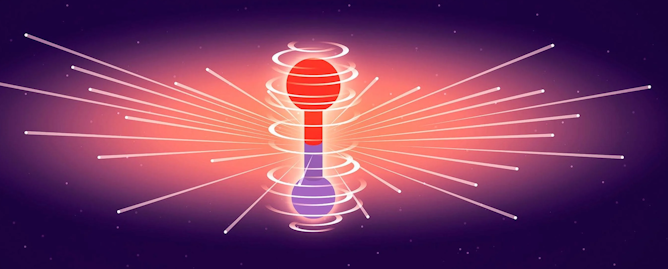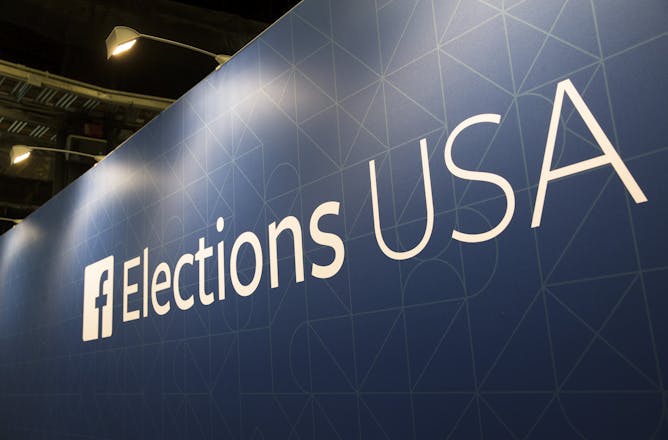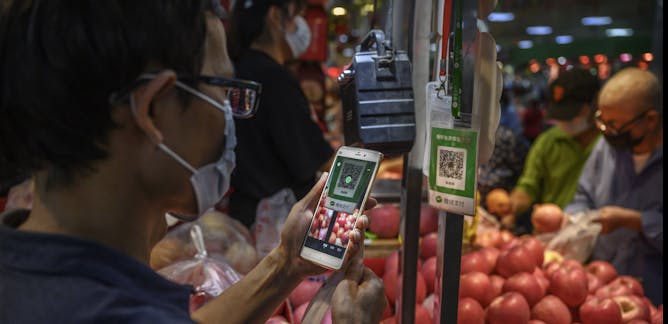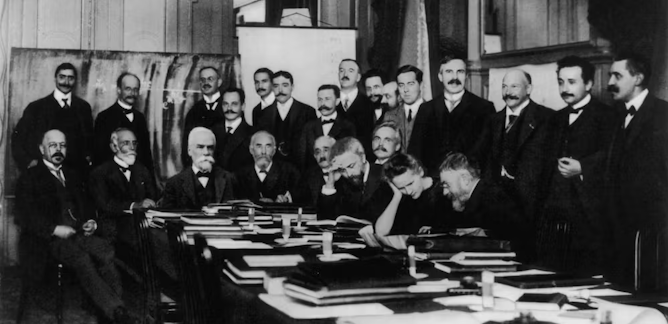|
|
|
|
The week in October when the Nobel Prizes are awarded is a busy one for science editors here at The Conversation, as my colleagues who worked late the past two evenings can tell you. To help you wade through the news, below are headlines from our coverage so far. Tomorrow we'll have a story from a nanotechnology expert on the Nobel Prize in chemistry, which was awarded today to three researchers for their work on quantum dots.
When ChatGPT came onto the scene late last year, there immediately was lots of hand-wringing in media circles around whether generative artificial intelligence would take jobs away from journalists. But my immediate worry with regard to media was the potential for disinformation. Harvard Kennedy School security expert Bruce Schneier shares that concern, particularly when it comes to politics, calling generative AI and large language models “uniquely suited to internet-era propaganda.” It remains to be seen how this powerful technology will change the information landscape, but his piece offers a valuable analysis of the major global trends around
disinformation.
If you’re a regular reader, you know that The Conversation has written extensively on the microbiome and other microbial communities found in our bodies and the environment. But here’s one that was new to me: the necrobiome, or the microbes in people’s bodies that live on after we die. Environmental microbiologist Jennifer DeBruyn from the University of Tennessee provides a detailed picture of how they not only aid in the decomposition process but also recycle carbon and nutrients from our bodies once they enter the soil. “That our own microbes play an important role in this cycle is one microscopic way we live on after death,” she writes.
Also in this week’s science news:
If there’s a subject you’d like our team of science editors to investigate – after all the Nobel Prizes are announced – please reply to this email.
|

|
Martin LaMonica
Director of Editorial Projects and Newsletters
|
|

Attosecond light pulses help researchers understand the movement of electrons.
Greg Stewart/SLAC National Accelerator Laboratory
Niranjan Shivaram, Purdue University
The 2023 Nobel Prize in physics recognized researchers studying electron movement in real time − this work could revolutionize electronics, laser imaging and more.
|

The intersection of politics and social media is fertile ground for AI-powered disinformation.
AP Photo/John Minchillo
Bruce Schneier, Harvard Kennedy School
ChatGPT and its ilk give propagandists and intelligence agents a powerful new tool for interfering in politics. The clock is ticking on learning to spot this disinformation before the 2024 election.
|

After you die, bacteria harvest your body for the nutrients that help push daisies.
Matriyoshka/iStock via Getty Images Plus
Jennifer DeBruyn, University of Tennessee
With the help of the microbes that once played an essential role in keeping you alive, the building blocks of your body go on to become a part of other living things.
|
|
|

Lori Weeden, UMass Lowell
Sea glass, while an eye-catching treasure and a multimillion-dollar industry, exists because of decades of improper waste management.
| |

Jesse Burkhardt, Colorado State University; Lauren Gifford, Colorado State University
The Biden administration directed agencies to consider the cost of greenhouse gas emissions in their future purchasing and budget decisions. An example shows just how much is at stake.
|

Jianqing Chen, Arts & Sciences at Washington University in St. Louis
The design philosophy of the everything app WeChat may seem paradoxical, being simultaneously pervasive and inconspicuous. But this idea of “everythingness” goes back to ancient Taoist philosophy.
| |

David D. Nolte, Purdue University
Superconductivity may sound like science fiction, but the first experiments to achieve it were conducted over a century ago. Heike Kamerlingh Onnes, credited with the discovery, won a Nobel Prize in 1913.
|
|
|
|
|
-
Andrew Maynard, Arizona State University; Sean Dudley, Arizona State University
Two decades ago, the nanotechnology revolution avoided stumbling by bringing a wide range of people to the table to chart its development. The window is closing fast on AI following suit.
-
Elizabeth Ellcessor, University of Virginia; Hamilton Bean, University of Colorado Denver
If an alert from the federal government pops up on your phone, will you notice it? Will you know who it’s from? Will you trust it?
-
Devon LaBat, Florida International University; Deborah Goldfarb, Florida International University; Jacqueline R. Evans, Florida International University; Nadja Schreiber Compo, Florida International University
Educating mock jurors about what kinds of statements are appropriate − or not − led to more critical assessments of forensic testimony and improved the quality of their decisions.
-
Zoie Magri, Tufts University
Your cells die to keep you alive. Cell death does everything from fighting cancer cells and pathogens to forming your fingers and toes.
-
Marco Túlio Pacheco Coelho, Swiss Federal Institute for Forest, Snow and Landscape Research (WSL); Catherine Graham, Stony Brook University (The State University of New York); Dave Roberts, Montana State University
A new study reveals how the geography of global climates influences the rich patterns of species diversity in an ever-changing world.
|
|
|
|
|
| | |
| | |
| |
| |
| |
|
|
|